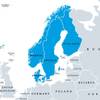Fog, which has shrouded parts of the U.S. Gulf of Mexico coast in recent weeks, could remain an intermittent threat to shipping and crude oil imports through April, according to a government meteorologist.
In February, March and April sea fogs can form quickly along the Gulf coast as warm moist air heading in from the Gulf hits cooler coastal waters, causing the moisture to condense.
“All of a sudden it’s like you drive into a brick wall and the visibility goes down to a sixteenth of a mile. Most ships don’t do much traveling in that,” said National Weather Service meteorologist Kent Prochazka.
It’s a phenomenon that can disrupt the steady traffic of crude oil tankers to Gulf Coast terminals and refining centers such as Corpus Christi, Houston, and Beaumont/Port Arthur in Texas and Lake Charles and New Orleans in Louisiana.
Under normal circumstances the U.S. Gulf Coast is the entry point for some six million barrels a day of crude oil, or roughly two thirds of the nation’s total imports. The country imports about nine million of the 15 million barrels it consumes each day.
But in the week that ended Feb. 16, persistent fog kept many tankers offshore and unable to offload their cargoes of crude oil, cutting Gulf coast imports to just over two million barrels, according to the U.S. Department of Energy.
Gulf coast fog was cited as the main reason for a huge 12-million-barrel decline in U.S. crude oil inventories that week, and recurring patchy fog prevented a rapid rebound in inventories the following week, contrary to many analysts’ expectations.
Suspicions that fog-related supply problems were pinching Gulf coast refiners were confirmed when the U.S. Department of Energy said it had rejected tentative requests from several refiners for oil from the Strategic Petroleum Reserve (SPR).Although the 540-million-barrel reserve was created for use in case of a national supply emergency, the Clinton administration approved the release of SPR oil to two refineries in Lake Charles last summer when an obstruction in a local shipping channel prevented the passage of oil tankers.
Lynn Hohensee, a spokesman for Conoco Inc., one of the companies that received SPR oil last summer, said Conoco had asked the government about obtaining more SPR last week because fog had delayed tanker deliveries. After the request was turned down, conditions improved and the company was able to bring the first of two fog-delayed crude oil tankers into its terminal, Hohensee said.
Jeff Goetz of consulting firm Poten & Partners said fog last month had delayed crude tankers seeking to enter the Houston Ship Channel for several days, causing a chain of events that had pushed up rates for tankers to the U.S. Gulf of Mexico. “Tankers were unable to make their next scheduled lifting of crude, they had to be replaced and that led to the rise in rates,” he said.
Several analysts said that while fog might throw the U.S. oil market off balance for a while, its impact would not endure. “I think it’s a short-term weather phenomenon, that will play itself out. I don’t think there is a long-term problem,” said Houston-based analyst Alan Struth. — (Reuters)
Featured videos

Tracking Foreign Vessels Working in the U.S. Jones Act Market

Inmarsat Enhances Service to Drive Digitalization

Inside the Electrified Truckable Tug
Subscribe for
Maritime Reporter E-News
Maritime Reporter E-News is the maritime industry's largest circulation and most authoritative ENews Service, delivered to your Email five times per week









